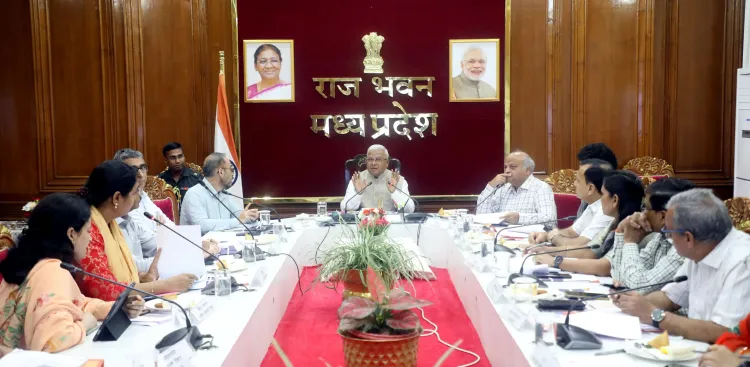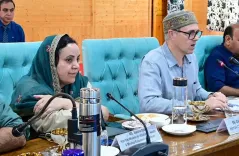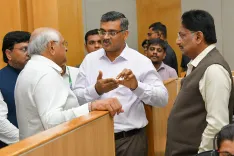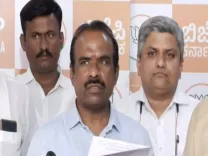How Can MLAs and MPs Play a Vital Role in Combating Sickle Cell Anaemia?

Synopsis
Key Takeaways
- Active involvement of MLAs and MPs is crucial.
- Financial support is needed to combat sickle cell anaemia.
- Success of the 100-day campaign should be built upon.
- Screening camps can enhance access to health services.
- Ayurvedic treatment is being integrated into care.
Bhopal, Sep 10 (NationPress) The Governor of Madhya Pradesh, Mangubhai Patel, on Wednesday called for a proactive involvement from elected officials, including MLAs and MPs, along with financial backing, to eradicate sickle cell anaemia.
During a review of various health initiatives aimed at combating sickle cell anaemia—a hereditary condition prevalent in the tribal areas of the state—Governor Patel expressed his concerns.
The meeting, held at Raj Bhavan, saw participation from senior officials in the fields of health and family welfare, AYUSH, and tribal affairs within the Madhya Pradesh government.
Governor Patel was informed that the 100-day sickle cell testing initiative has concluded, resulting in the distribution of over 12 lakh genetic cards to patients.
He remarked, "The accomplishments of the 100-day sickle cell testing campaign are impressive and warrant an extension of another 125 days. It is crucial to organize screening camps for sickle cell and tuberculosis (TB) in weekly markets to improve health service accessibility for underserved communities," he added.
He emphasized the need for ongoing collaboration between health workers and Anganwadi centres.
Utilizing Anganwadi centres effectively can greatly enhance the reach and impact of family welfare initiatives, he noted.
Furthermore, he indicated that during his visits to various districts, programs such as PM JANMAN, Dharti Abha, sickle cell management, and TB control should be thoroughly evaluated.
Additionally, the Governor highlighted the importance of improving the distribution of Ayurvedic medicines and instructed that sickle cell patients receive Ayurvedic care.
As part of a pilot project, the health department has already provided Ayurvedic medicines to 1,546 patients in Dhar and 1,015 patients in Barwani.









